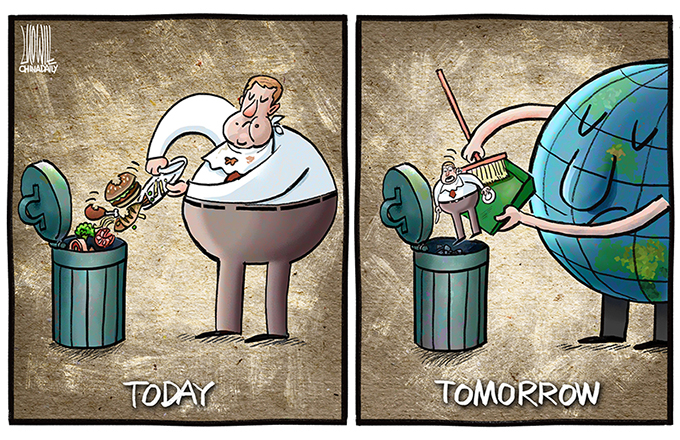A not-so-happy birthday for Brexit
As the United Kingdom marked the first anniversary of the electorate's decision to quit the European Union on Friday, voters on both sides of the debate are still none the wiser about the shape of their post-Brexit future.
Talks in Brussels, which opened on Monday, were aimed at producing an amicable divorce settlement between the UK and its 27 EU partners by March 2019. But with an almost total lack of clarity about the likely outcome, domestic opinion remains almost as divided as it was a year ago.
A bloc of ardent "remainers" believe their country has embarked on an exercise in collective suicide that even at this late stage can be reversed, while hardliners in the "leave" camp cannot wait to break the perceived shackles of an overweening "Euro-state". Between them is a bemused majority that just wants to get the whole thing resolved with as little pain as possible.
After a year in which Prime Minister Theresa May was insisting that "Brexit means Brexit", her senior colleagues are now proclaiming that there is no such thing as a "hard" Brexit or a "soft" Brexit. That is basically two ways of saying the same thing and neither formulation is particularly enlightening.
Domestic commentators have been earnestly explaining that the country is embarking on its most challenging negotiations since World War II, knowing full well that their readers' attention is focused more on the fourth terror attack in as many months and on the aftermath of last week's devastating London tower block fire.
Skeptics might suggest the current confusion only illustrates the pitfalls of parliamentary democracy, at least in the predominantly two-party system that has historically prevailed in the UK.
The indecisive and unnecessary June 8 general election, which denied May's Conservatives an overall parliamentary majority, has given politicians of all stripes endless possibilities to interpret the will of the electorate. Did the ruling party's loss of seats reflect a revolt of the young against the old? Was it a backlash against austerity? Above all, was it a rejection of May's pledge to crash out of the EU without a deal rather than accept unsatisfactory terms from the UK's European partners?
The virtue of parliamentary democracy is that it allows voters to change their minds. In 2015, they gave May's predecessor David Cameron a narrow mandate for a platform that included a pledge to hold a referendum on EU membership. Post-Brexit, May gambled that majority on her perception that voters backed her tough stance toward the EU.
It can now be argued a majority of voters have rejected that strategy. What voters cannot change their minds about, apparently, is last year's narrow decision to leave the EU as a result of a "yes-no" referendum, a recent novelty in British constitutional procedure.
The 52-48 percent vote is now treated almost as holy writ by hardline Brexiters, who regard it as the unalienable "will of the British people", which is in itself a somewhat un-British concept. With the Conservatives and opposition Labour Party both now supporting some version of Brexit, the opposing sides appear to have interpreted the June 8 result as meaning that most voters want a divorce that will do least damage to future relations with the EU.
May's shaky position in the new parliament means she might have to proceed with a "soft" Brexit, even as her colleagues are denying any such thing exists. That might include an agreement that would allow Britain to retain some benefits of membership of the EU Single Market and of the Customs Union, which means a tariff-free movement of goods. The opposition Labour Party, however, is ambiguous about where it stands on either issue.
While Britain's international partners, both inside and outside the EU, can only look on in wonderment at the mess the country's politicians have landed it in, British voters are invited to put their blind faith in the promise of those same politicians to deliver them "the best possible deal".
The author is a senior media consultant for China Daily, Europe. [email protected]
(China Daily 06/24/2017 page5)

























